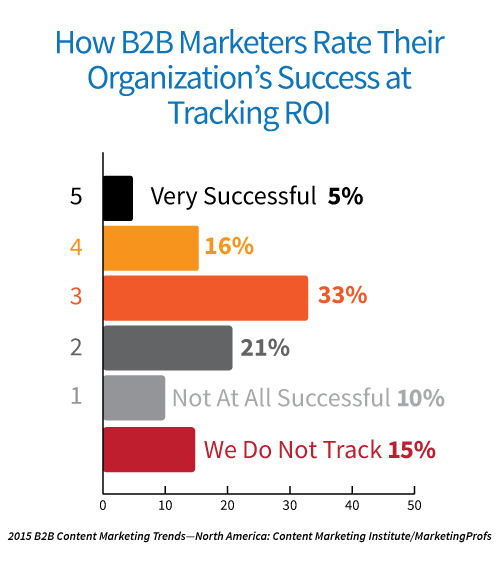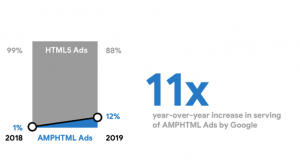By Asad Haroon, Published October 29, 2014

A new survey by the Content Marketing Institute found that 86% of businesses are using content marketing. CMI found that marketers spend an average of 28% of their marketing budget on content, with the most effective marketers devoting an average of 37% to a content marketing strategy. And nearly half of the companies surveyed have a dedicated content marketing team that works either independently or across organizational silos.
According a new study by Starfleet Media, 63% of B2B companies plan on increasing their content marketing budget in 2015. These businesses intend to employ content in a variety of ways, and are hoping to see some important benefits from these efforts, such as:
-
Lead Generation – An impressive 84% of study participants reported that they’re seeking to gain new customers by increasing their content marketing.
-
Sales Conversions – 78% hope to convert more leads into sales through the use of persuasive, high quality copy that educates prospects and helps them through the decision-making process, thus reducing the duration of the sales cycle.
-
Increased Web Traffic – More than half of B2B companies hope to gain more visitors to their website by building up their content.
-
Improving SEO Ranking – Just over one-third of the companies surveyed are looking to boost search rankings as a result of their increased content marketing efforts.
But Forrester’s latest report on B2B content marketing found that for 87% of participants, developing engaging content is a major challenge. According to Forrester VP and principal analyst Laura Ramos, while many B2B marketers are engaging in content marketing, only 14% are getting the results they had hoped for.
If you intend to increase your B2B content marketing budget as so many others are doing, how can you be sure that your efforts are not wasted?
The CMI study lends some insight. It found that 60% of B2B marketers with a documented content marketing strategy say that their efforts are effective, compared with 32% of those with only a verbal strategy. And while most do have a content marketing strategy, only 35% have actually documented said strategy.
In other words, they hold team meetings, devise a plan, assign roles, and take action (all good things), but fail to put it into a spreadsheet or other form of documentation. Which makes it very difficult to track results, especially their ROI. And most do not:

We believe there are a number of factors that contribute to this aversion to documenting B2B content marketing.
- Study participants reported that they’re currently working on an average of thirteen content marketing initiatives and plan to add an average of eight more. With all of these initiatives floating around, forming a content marketing strategy with a well-defined structure can be something of a pain. (Everyone’s thinking it; we’re just saying it.)
- Email marketing, blog posts, syndicated content, white papers, social media posts and content curation might all work toward the same objective, (to generate leads, improve page ranking, etc.) but they take different paths to reach it. And results from many scattered activities can be difficult to track.
- To be the most effective, B2B content marketing should not exist separately from other forms of marketing you are using. The complexity of making content an integral part of an all-encompassing marketing strategy can be off-putting.
- Brainstorming is more fun than adding cells to a spreadsheet. It’s energizing to discuss everyone’s ideas about how to market with all of this amazing content you’re going to create. But documenting, for many of us, equals tedium.
- Since brand awareness is one of those fuzzy benefits that are more difficult to track, it’s easy to simply assume that content marketing is having a positive effect: “Well, we’re um…creating brand awareness.”
Content marketing can be fraught with frustrations. But marketers are not content, if you will, with the status quo; 36% say they’ll start working on measuring content ROI in the coming year. And they also plan to make their content more engaging, a topic I’ll delve into in a coming post where I’ll offer my take on a recent article from Forbes.
This article was originally posted on the InsideUp corporate blog, Inside Updates.
photo credit: kevin dooley via photopin cc
Business Articles | Business 2 Community
(426)
Report Post






